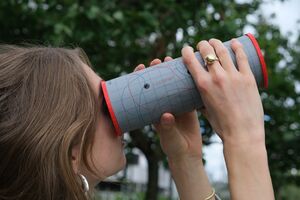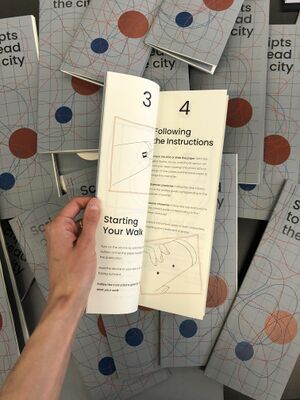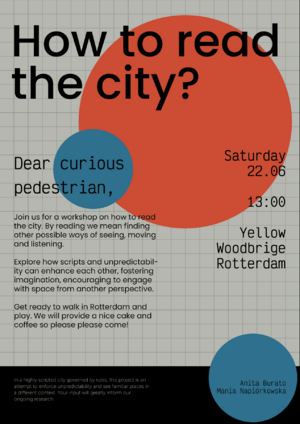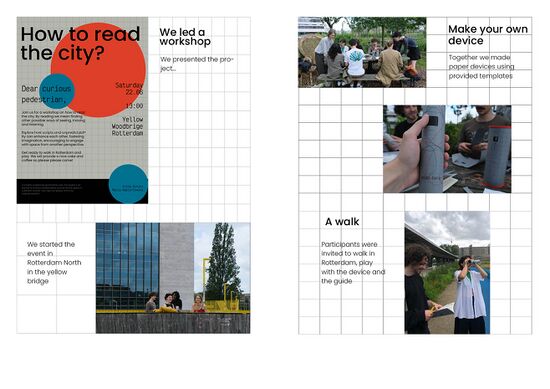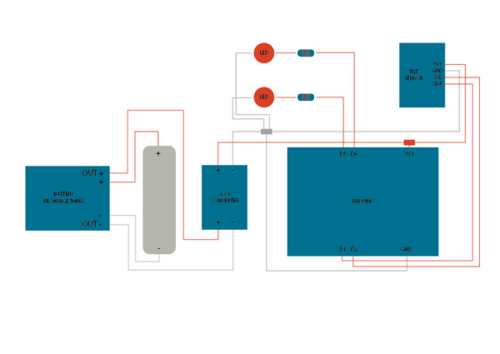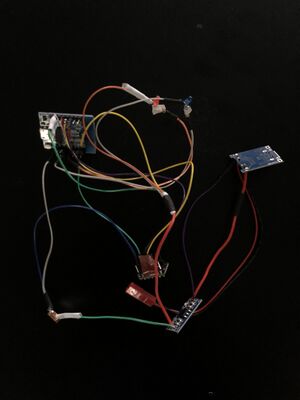Scripts to read the city: Difference between revisions
No edit summary |
No edit summary |
||
| Line 37: | Line 37: | ||
[[File:Posterworkshopscripts.png|thumb|left]] | [[File:Posterworkshopscripts.png|thumb|left]] | ||
[[File:Documnetation4.jpg|thumb|550x550px]] | [[File:Documnetation4.jpg|thumb|550x550px]] | ||
| Line 56: | Line 58: | ||
== Prototyping the device == | == Prototyping the device == | ||
[[File:Wiringsketch.png|thumb|left|500x500px|wiring sketch]] | |||
inside the device[[File:Wiringsketch.png|thumb|left|500x500px|wiring sketch]] | |||
[[File:Unnamed-3.jpg|thumb|center]] | [[File:Unnamed-3.jpg|thumb|center]] | ||
Revision as of 22:52, 25 June 2024
By reading we mean finding another possible form of seeing, moving, listening
The project imagines an urban environment that can be read, analyzed and criticized as a text. By reading the city in this way we find other possible ways of seeing, moving and listening. In a scripted city, marked by escalating levels of perfection, efficiency and control, the emancipatory aspects of urban life are undermined, allowing little room for anything that doesn't fit the image of the "norm".
Scripts to Read the City is an attempt to foster diverse experiences and uses of space, similar to a theater script interpreted differently by each actor. The tools of navigation are a device indicating which character to play and a guide, including a set of directions and instructions.
The project explores a relation between scripts and spontaneity, chance and control, and how scripts and unpredictability can enhance each other, stimulating imagination, encouraging us to engage with space from another perspective.
Context
This project is part of the Special Issue 24 - of Experimental Publishing. This past three months were dedicated to explore together the possibilities to compute and publish while being outdoors. During this special issue we were experimenting with loitering as a method to do research in and about the city. There are so many written and unwritten rules, the city is full with order, constantly navigating or forbidding.
There are so many written and unwritten rules, the city is full with order, constantly navigating or forbidding.
If you can realise the rules you can build something that hacks into it, and the first step for this is just paying attention. So we spent the last 3 months walking, listening, observing to create our own set of rules to structure a new experience. Many services and "smart solutions" provide comfort but also drastically reduce the level of unpredictability in a city. In a highly scripted cities, filled with prohibitions, navigations, we asked ourselves, how can we use scripts to enforce and strenghten unpredictability.
- The tools of navigation for this project, to help us question how we see, move and listen within the scripted city, are:
- 1) a device, a monocular with a built in tilt sensor, that based on step count assign a character to follow 2) step by step printed guide, based on the indicated character, it provides a user with a set of directions and instructions.
The device together with a printed "step by step guide" explore a relation between scripts and spontaneity, chance and control, and how scripts and unpredictability can enhance each other, fostering imagination, encouraging us to engage with space from another perspective.
Workshop
Prototyping the device
inside the device
Final Code:
include <BMI160Gen.h>
define listener 12
define observer 14
const int select_pin = 10; const int i2c_addr = 0x69; int aState; int aLastState;
void setup() {
Serial.begin(115200); while (!Serial); BMI160.begin(BMI160GenClass::I2C_MODE, i2c_addr); BMI160.setStepCountEnabled(1); BMI160.setStepDetectionMode(0); pinMode (listener, OUTPUT); pinMode (observer, OUTPUT); digitalWrite(listener, HIGH); delay (1000); digitalWrite(listener, LOW);
}
void loop() {
int steps = BMI160.getStepCount();
if (steps > 100){
BMI160.resetStepCount();
}
Serial.println(steps);
aState = digitalRead(steps);
Serial.println(steps);
if(steps > 0 && steps < 50){
digitalWrite (listener, HIGH);
}
else {
digitalWrite (listener, LOW);
}
if(steps > 50 && steps < 100){
digitalWrite (observer, HIGH);
}
else {
digitalWrite (observer, LOW);
}
}

